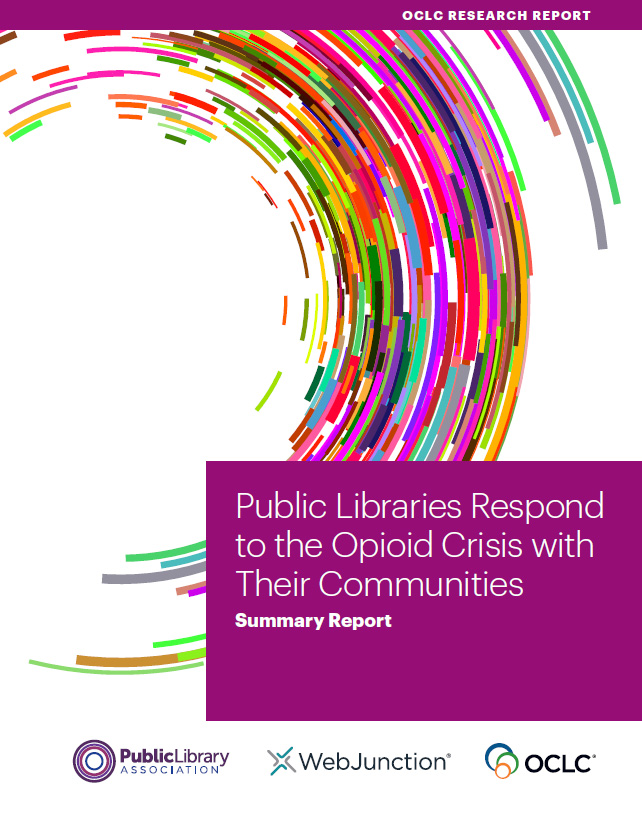Public Libraries Respond to the Opioid Crisis with Their Communities
As the impact of the opioid epidemic is felt in communities across the US, public libraries are choosing to be part of the community response. With funding from the Institute of Museum and Library Services, (project number LG-00-18-0298-18), and in partnership with the Public Library Association (PLA), OCLC is sharing knowledge and resources that will help public libraries and their community partners develop effective strategies to address the opioid epidemic in America.
The United States is experiencing an opioid epidemic, and public libraries across the country are choosing to respond to this public health emergency locally. As central community institutions open to all, public libraries are finding themselves on the front lines of the opioid crisis. Together with community partners, public libraries are providing critically needed information and services, organizing education and training events, and supporting prevention and recovery efforts.
In response to the growing opioid crisis in the United States, OCLC and PLA sought to better understand how public libraries are responding to the opioid crisis locally with partners. Eight public libraries and their respective community partners participated in this research study, which is based on interviews with library staff, library board members, staff at community partner organizations, and members of the community.
This summary report gathers the findings from the eight public libraries (read the detailed case studies for more), sharing the opioid response activities that were implemented, the funding and partnerships leveraged to do so, outputs from the responses, and opportunities and challenges the libraries faced.
This research surfaced the following as major outcomes of the libraries’ response activities:
- increased relevant resources made available to the community, such as naloxone and drug disposal kits
- made a positive impact on patrons’ lives
- increased community awareness and knowledge about the opioid crisis
- began to address stigma about substance use disorder
- increased positive perception of the library
- developed new partnerships and expanded existing ones, resulting in coordinated efforts that better meet community needs
- reached other libraries and community organizations
Read the summary report for the full findings.
Suggested citation:
Allen, Scott G., Larra Clark, Michele Coleman, Lynn Silipigni Connaway, Chris Cyr, Kendra Morgan, and Mercy Procaccini. 2019. Libraries Respond to the Opioid Crisis with Their Communities: Summary Report. Dublin, OH: OCLC. https://doi.org/10.25333/qgrn-hj36.
For More Information
For more information about this work, please contact OCLC Research.
